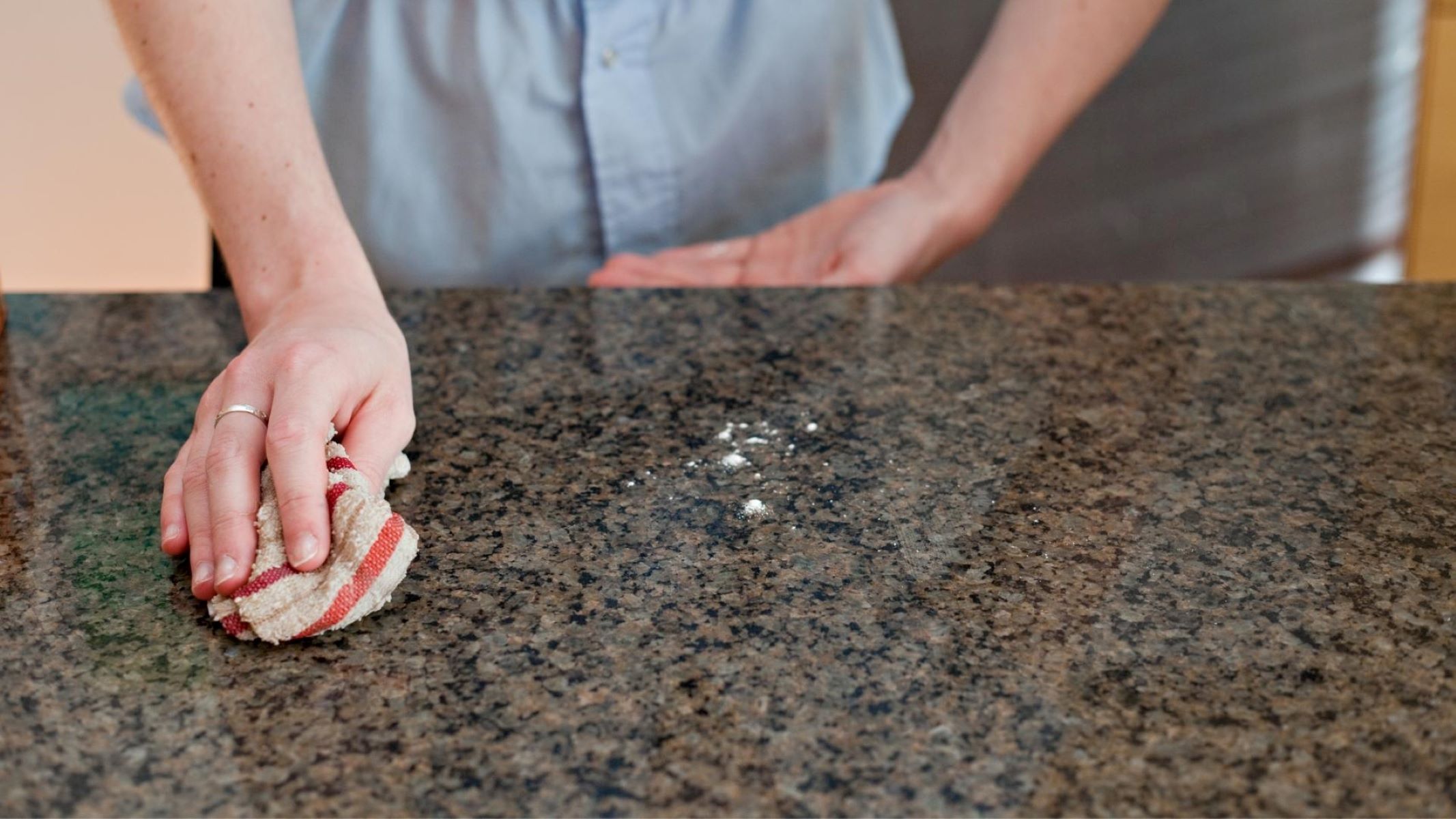

Articles
What Cleaner To Use On Granite Countertops
Modified: February 23, 2024
Discover the best articles on what cleaner to use on granite countertops. Expert tips and advice for keeping your countertops clean and shiny.
(Many of the links in this article redirect to a specific reviewed product. Your purchase of these products through affiliate links helps to generate commission for Storables.com, at no extra cost. Learn more)
Introduction
Granite countertops are a popular choice for homeowners due to their durability, beauty, and resistance to heat and scratches. However, to keep them looking their best, proper cleaning and maintenance are essential. Using the right cleaner is crucial to preserve the natural luster and longevity of granite countertops.
In this article, we will explore the different types of cleaners that are safe and effective for granite countertops. We will also discuss common cleaning mistakes to avoid and provide some natural DIY cleaner recipes for those who prefer using homemade solutions. By following these guidelines, you can ensure that your granite countertops remain in pristine condition for years to come.
Key Takeaways:
- Choose the right cleaner: Use granite-specific cleaners, mild dish soap, isopropyl alcohol, or natural DIY cleaners to maintain the beauty and integrity of your granite countertops without causing damage.
- Proper maintenance is key: Regularly seal the granite, use cutting boards, wipe up spills promptly, and avoid harsh chemicals to ensure your granite countertops remain beautiful and durable for years to come.
Read more: What Not To Use On Granite Countertops
Understanding Granite Countertops
Granite is a natural stone that is formed deep within the Earth’s crust over millions of years. It is composed primarily of quartz, feldspar, and mica, which give it its unique beauty and strength. Granite countertops are highly regarded for their durability, resistance to heat, and ability to withstand daily wear and tear.
One of the reasons granite is a popular choice for countertops is its natural variation in color and pattern. Each slab of granite is unique, with a stunning array of colors ranging from light and subtle to bold and dramatic. This means that no two granite countertops will look exactly alike, adding to the distinctive appeal of this material.
Granite countertops are created by cutting slabs from large blocks of granite and then polishing them to a smooth and reflective finish. The resulting surface is not only visually appealing but also highly resistant to stains, making it an ideal choice for kitchen and bathroom countertops.
It is important to note that while granite is a durable material, it is not indestructible. It can be damaged by improper cleaning techniques or exposure to certain substances. Therefore, it is crucial to understand how to properly clean and maintain granite countertops to ensure their longevity.
Common Cleaning Mistakes to Avoid
When it comes to cleaning granite countertops, avoiding certain mistakes is crucial to prevent damage and maintain their pristine condition. Here are some common cleaning mistakes you should avoid:
- Using abrasive cleaners: Avoid using harsh or abrasive cleaners that can scratch the surface of the granite. This includes cleaners with acidic ingredients like vinegar or lemon juice, as they can etch the surface and dull the natural shine of the stone.
- Using rough scrub brushes or sponges: Opt for soft, non-abrasive cloths or microfiber towels when cleaning granite countertops. Scrub brushes or sponges with abrasive surfaces can cause scratches on the surface.
- Leaving spills for too long: Promptly clean up spills on granite countertops to avoid staining. Even though granite is resistant to most stains, certain substances like red wine, coffee, or oil can penetrate the surface if left for an extended period of time.
- Using generic household cleaners: Avoid using generic household cleaners that are not specifically formulated for granite countertops. These cleaners may contain harsh chemicals that can strip away the sealant and damage the granite over time.
- Using excessive water or cleaners: Applying excessive amounts of water or cleaner on granite countertops can seep into the stone and cause discoloration or damage. Use cleaner sparingly and wipe up any excess moisture.
By avoiding these common cleaning mistakes, you can maintain the integrity and beauty of your granite countertops for years to come.
Recommended Cleaners for Granite Countertops
Choosing the right cleaner for your granite countertops is crucial to maintain their beauty and longevity. Here are some recommended cleaners that are safe and effective for granite:
- Granite-specific cleaners: Look for cleaners specifically formulated for granite countertops. These cleaners are designed to cleanse the surface without causing any damage or residue. They are usually pH-neutral and do not contain harsh chemicals that can harm the stone.
- Mild dish soap and water: A simple solution of mild dish soap and water can be used as a gentle and effective cleaner for granite countertops. Mix a few drops of dish soap in a bucket of warm water, dampen a soft cloth in the solution, and wipe down the granite surface. Rinse thoroughly with clean water and dry with a microfiber towel.
- Isopropyl alcohol: Isopropyl alcohol is another safe and effective cleaner for granite countertops. You can create a solution by mixing equal parts of isopropyl alcohol and water. Spray the solution onto the surface and wipe it clean with a soft cloth or paper towel.
- Hydrogen peroxide: Hydrogen peroxide can be used to remove tough stains and disinfect the granite countertops. Mix equal parts of hydrogen peroxide and water, apply the solution to the stained area, and let it sit for a few minutes. Scrub gently with a soft cloth or sponge, then rinse and dry the surface.
- Natural stone cleaners: There are several natural stone cleaners available in the market that are specifically formulated for granite countertops. These cleaners are made from plant-based ingredients and are eco-friendly. Follow the instructions provided on the product for the best results.
Remember to always read and follow the instructions provided by the manufacturer on the cleaners you choose to ensure their safe and effective use on granite countertops. Additionally, it is recommended to spot test any new cleaner in a small, inconspicuous area before applying it to the entire surface.
By using these recommended cleaners, you can effectively clean and maintain the beauty of your granite countertops for years to come.
When cleaning granite countertops, use a mild dish soap and warm water for daily cleaning. Avoid using acidic or abrasive cleaners, as they can damage the surface of the granite.
Natural DIY Cleaners for Granite Countertops
If you prefer to use homemade cleaners, there are several natural ingredients that can effectively clean and sanitize your granite countertops. Here are some DIY cleaner recipes:
- Vinegar and water: Mix equal parts of water and white vinegar in a spray bottle. Vinegar is a natural disinfectant and can help remove stains. Spray the solution onto the surface, let it sit for a few minutes, then wipe it clean with a soft cloth. Rinse thoroughly with water afterward to remove any residue.
- Isopropyl alcohol and water: Create a solution by mixing equal parts of isopropyl alcohol and water in a spray bottle. Isopropyl alcohol helps to remove grease and kill bacteria. Spray the solution onto the countertop, let it sit for a few minutes, then wipe it clean with a soft cloth or paper towel.
- Baking soda and water paste: Mix baking soda with water to create a paste-like consistency. Apply the paste to any stains or stuck-on grime on the granite surface. Gently scrub the area with a soft cloth or sponge, then rinse thoroughly with water and dry with a microfiber towel.
- Lemon juice and water: Create a solution by mixing equal parts of lemon juice and water in a spray bottle. Lemon juice has natural antibacterial properties and can help remove stains and odors. Spray the solution onto the surface, let it sit for a few minutes, then wipe it clean with a soft cloth.
- Castile soap and water: Mix a few drops of mild liquid castile soap with warm water in a bucket. Dip a soft cloth or sponge into the soapy water and gently clean the granite surface. Rinse thoroughly with clean water and dry with a microfiber towel.
When using these DIY cleaners, it is essential to remember a few key tips. First, always test the cleaner on a small, inconspicuous area of the countertop before applying it to the entire surface. This will ensure that the cleaner does not cause any damage or discoloration. Second, avoid using acidic ingredients like lemon juice or vinegar too frequently, as they can gradually dull the shine of the granite over time. Finally, rinse the countertop thoroughly with clean water after using any cleaner to remove any residue.
With these natural DIY cleaners, you can safely and effectively clean your granite countertops while minimizing exposure to harsh chemicals.
Read more: What Are Granite Countertops
Additional Tips for Maintaining Granite Countertops
Proper maintenance is key to keeping your granite countertops looking beautiful for years to come. Here are some additional tips to help you maintain the longevity and appearance of your countertops:
- Seal the granite: Granite countertops should be sealed regularly to protect the stone from staining and water damage. A good quality granite sealer can help maintain the natural beauty and integrity of the stone. Follow the manufacturer’s instructions on how often to seal your countertops.
- Use cutting boards and trivets: While granite is highly resistant to scratches and heat, it is still advisable to use cutting boards for slicing and chopping, and trivets or hot pads for placing hot pots and pans on the surface. This will prevent any potential damage or dulling of the granite.
- Wipe up spills immediately: Accidents happen, and if a spill occurs on your granite countertops, it is essential to clean it up immediately. This will prevent the spill from seeping into the stone and potentially causing stains or damage.
- Avoid sitting or standing on the countertops: Granite countertops are designed to support objects, but excessive weight from sitting or standing on the surface can cause cracks or damage to the stone. Use caution and avoid placing heavy items or sitting on the countertops.
- Regularly dust and wipe down the countertops: As part of your routine cleaning, dust the countertops with a soft, microfiber cloth to remove any debris or particles. This will prevent the build-up of dust and dirt, keeping the countertops looking clean and polished.
- Avoid harsh chemicals and cleaners: Apart from using the recommended cleaners or natural DIY cleaners mentioned earlier, avoid using harsh chemicals, bleach, or ammonia-based cleaners on your granite countertops. These can damage the stone and strip away the sealant.
- Avoid using acidic or abrasive substances: As mentioned before, acidic substances like lemon juice or vinegar can dull the shine of the granite over time. Similarly, abrasive cleaners or scrubbing pads can scratch the surface of the stone. Stick to gentle cleaning methods and products.
- Regularly clean and dry the sink area: If your granite countertops have an integrated sink, make sure to regularly clean and dry the area around the sink. This will prevent water from pooling or seeping into the granite, which can cause discoloration or damage.
By following these additional tips, you can ensure that your granite countertops stay in top-notch condition, retaining their beauty and durability for many years.
Conclusion
Granite countertops are a beautiful and durable choice for any home, and proper cleaning and maintenance are essential to preserve their natural elegance and longevity. By understanding the nature of granite and avoiding common cleaning mistakes, you can keep your countertops looking pristine for years to come.
It is important to use the right cleaners for granite countertops to avoid damage or dulling of the stone. Recommended options include granite-specific cleaners, mild dish soap and water, isopropyl alcohol solutions, hydrogen peroxide, and natural stone cleaners. These cleaners will effectively clean and sanitize the surface without compromising its integrity.
If you prefer homemade solutions, several natural DIY cleaners can be used, such as vinegar and water, isopropyl alcohol and water, baking soda and water paste, lemon juice and water, and castile soap and water. These DIY cleaners offer a safe and eco-friendly alternative for maintaining the beauty of your granite countertops.
Additionally, following the proper maintenance tips is crucial to the upkeep of your granite countertops. Regularly sealing the granite, using cutting boards and trivets, promptly wiping up spills, avoiding excessive weight or pressure on the countertops, regularly dusting and cleaning, and avoiding harsh chemicals or abrasive substances will help preserve the longevity and appearance of your granite countertops.
By implementing these guidelines and investing a little time and care, you can enjoy the timeless beauty and durability of your granite countertops for many years to come. So, keep your countertops clean, protect them from damage, and enjoy the stunning elegance they bring to your home.
Frequently Asked Questions about What Cleaner To Use On Granite Countertops
Was this page helpful?
At Storables.com, we guarantee accurate and reliable information. Our content, validated by Expert Board Contributors, is crafted following stringent Editorial Policies. We're committed to providing you with well-researched, expert-backed insights for all your informational needs.
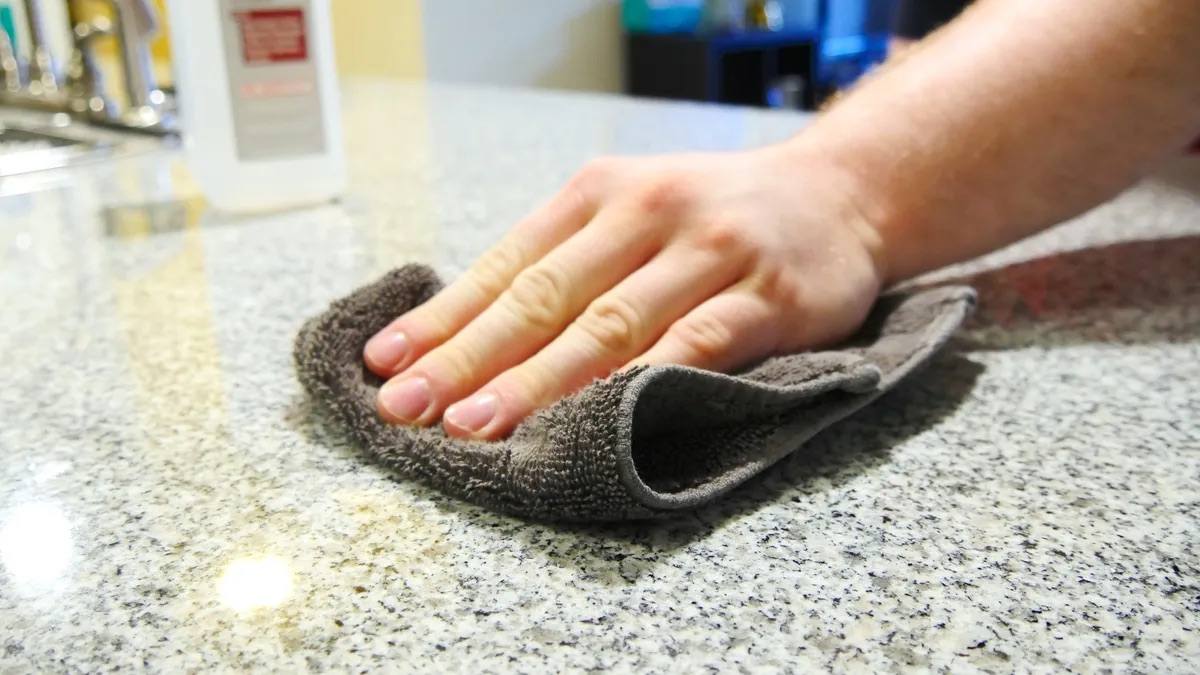
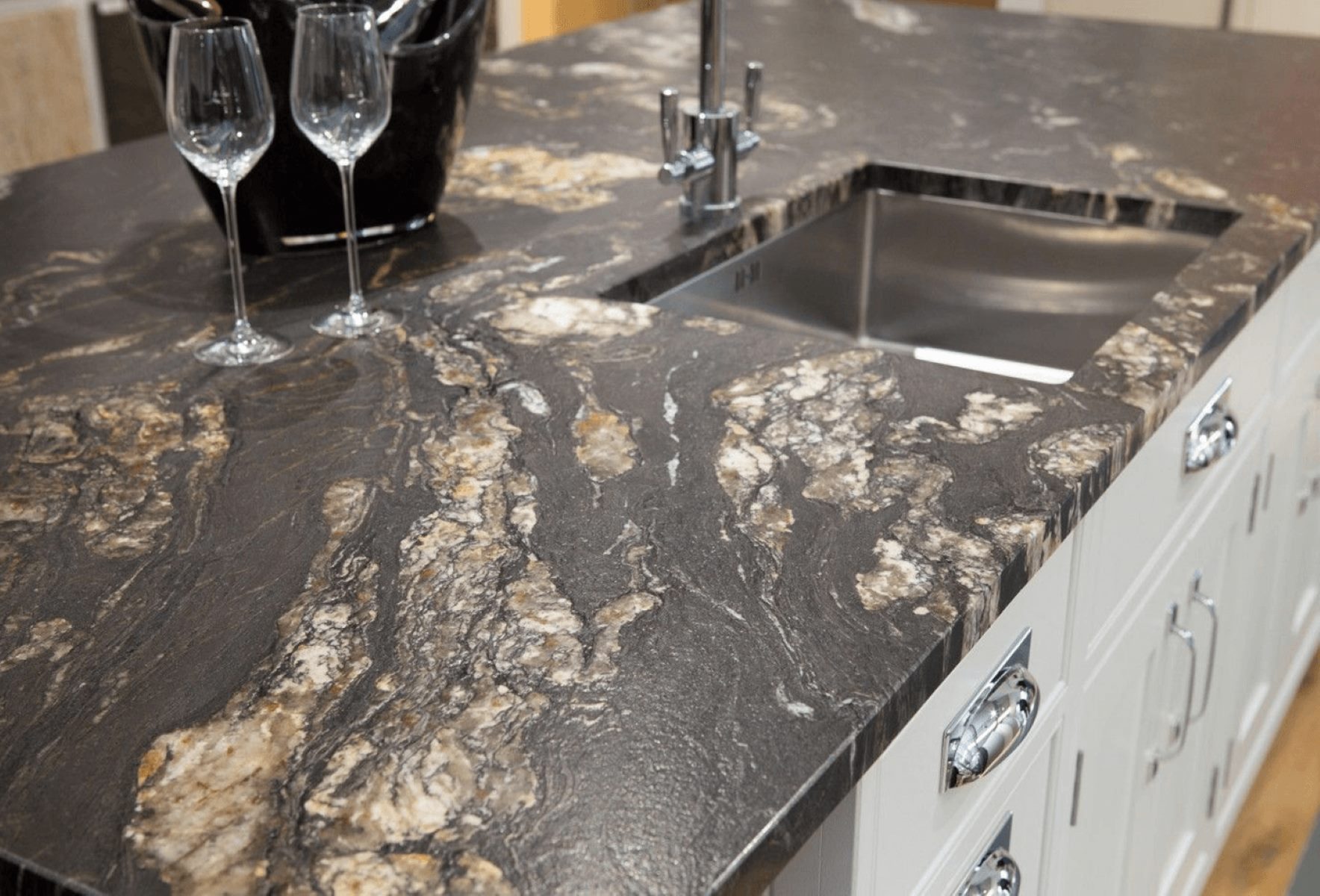
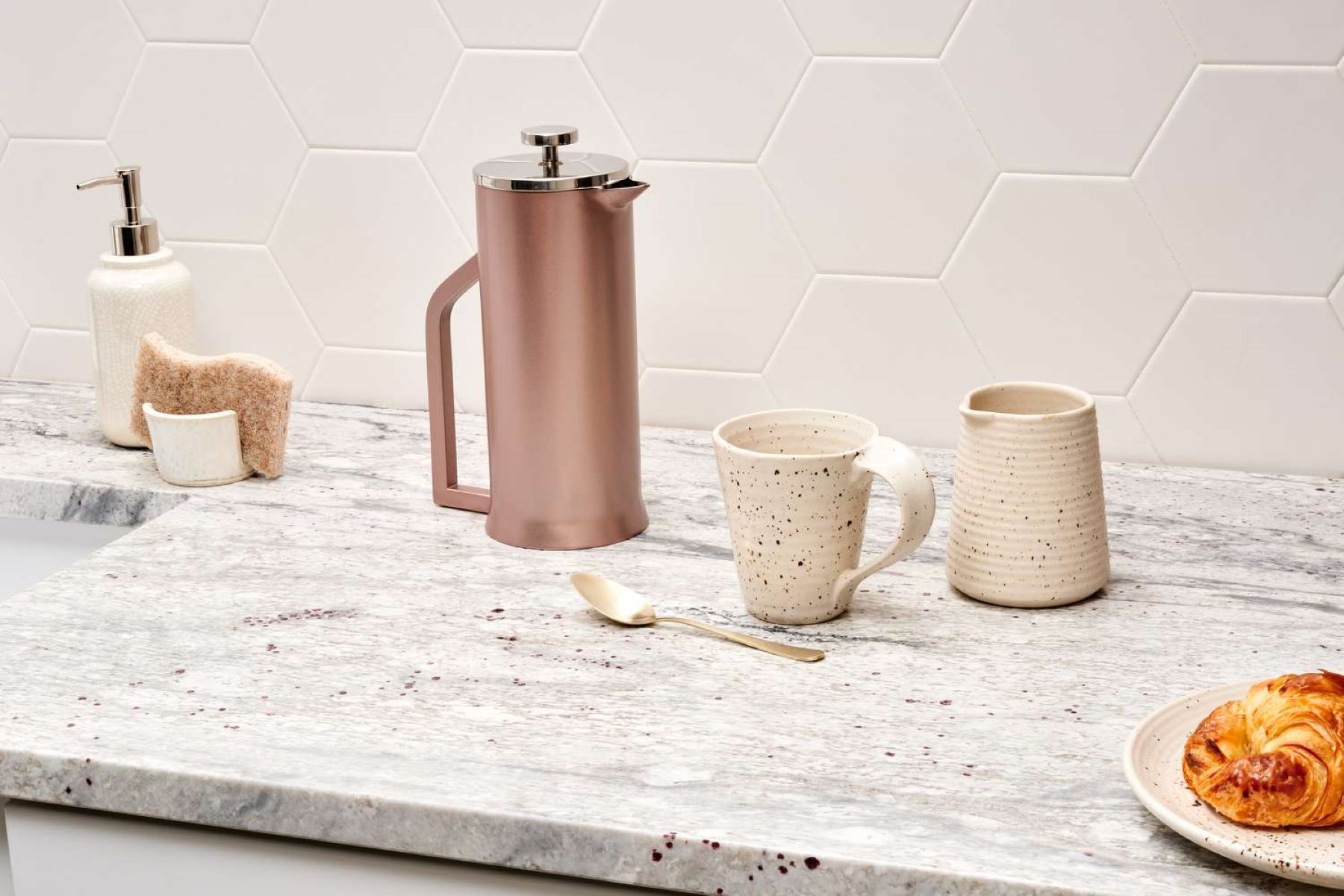
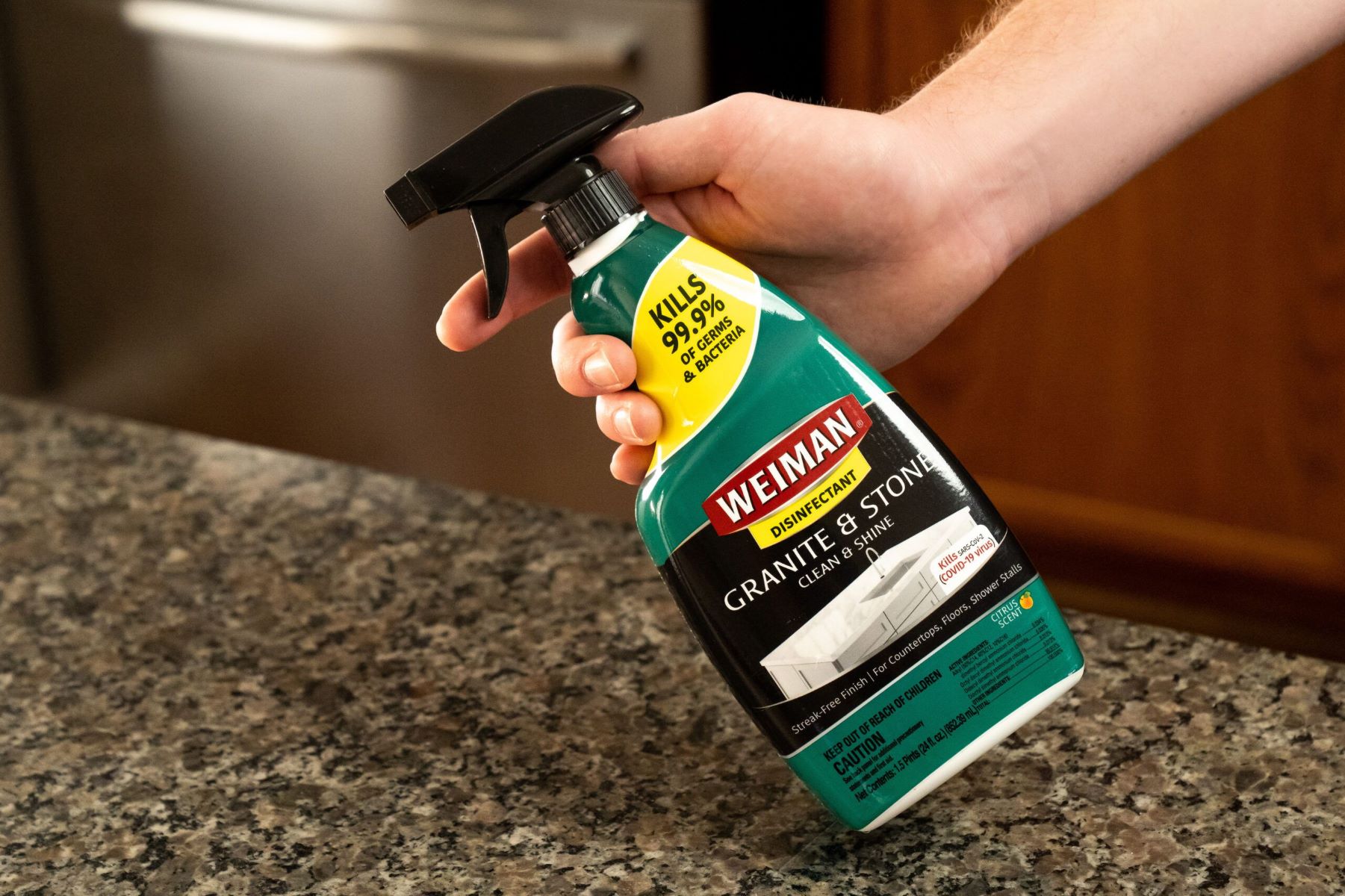

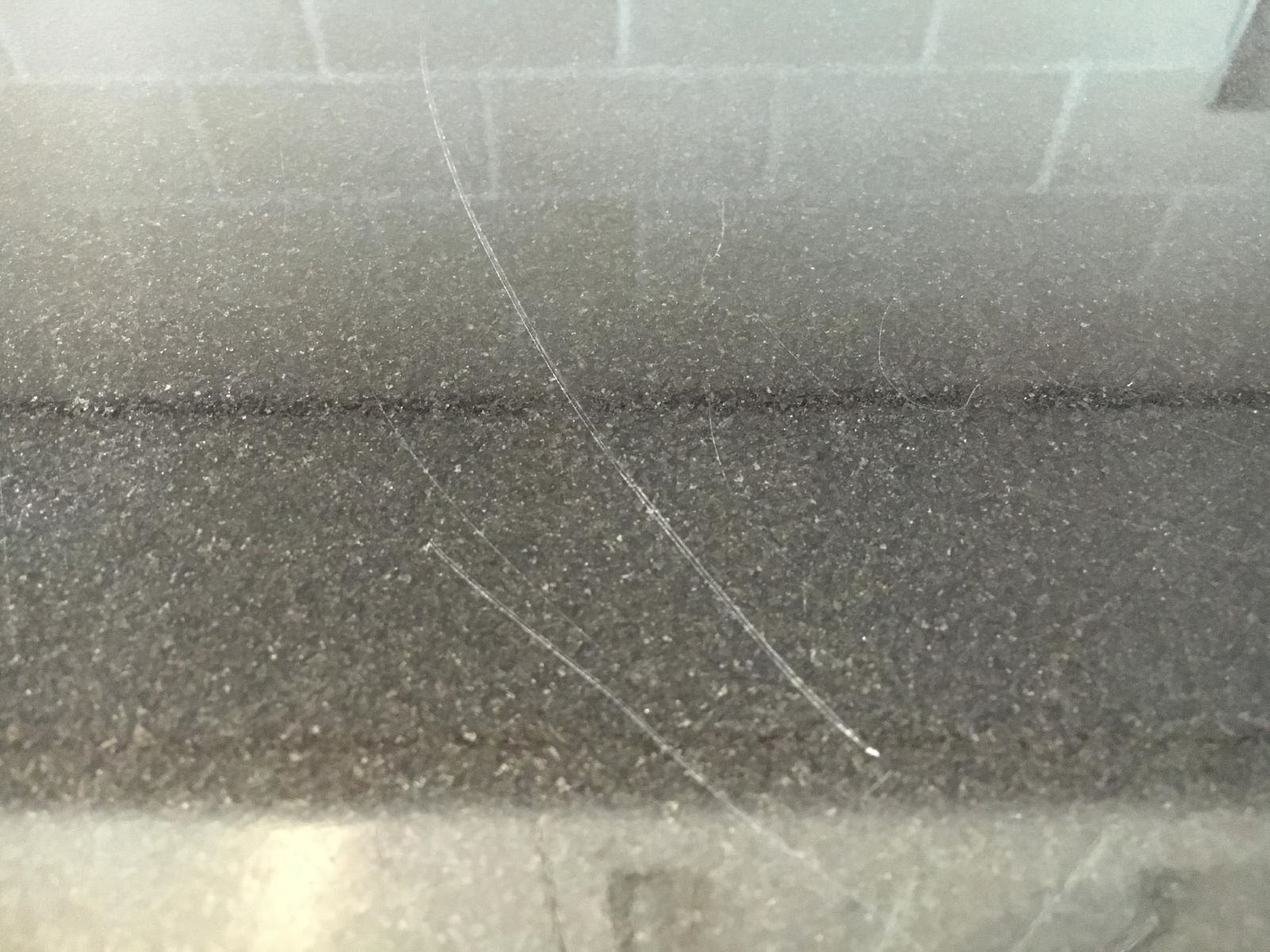
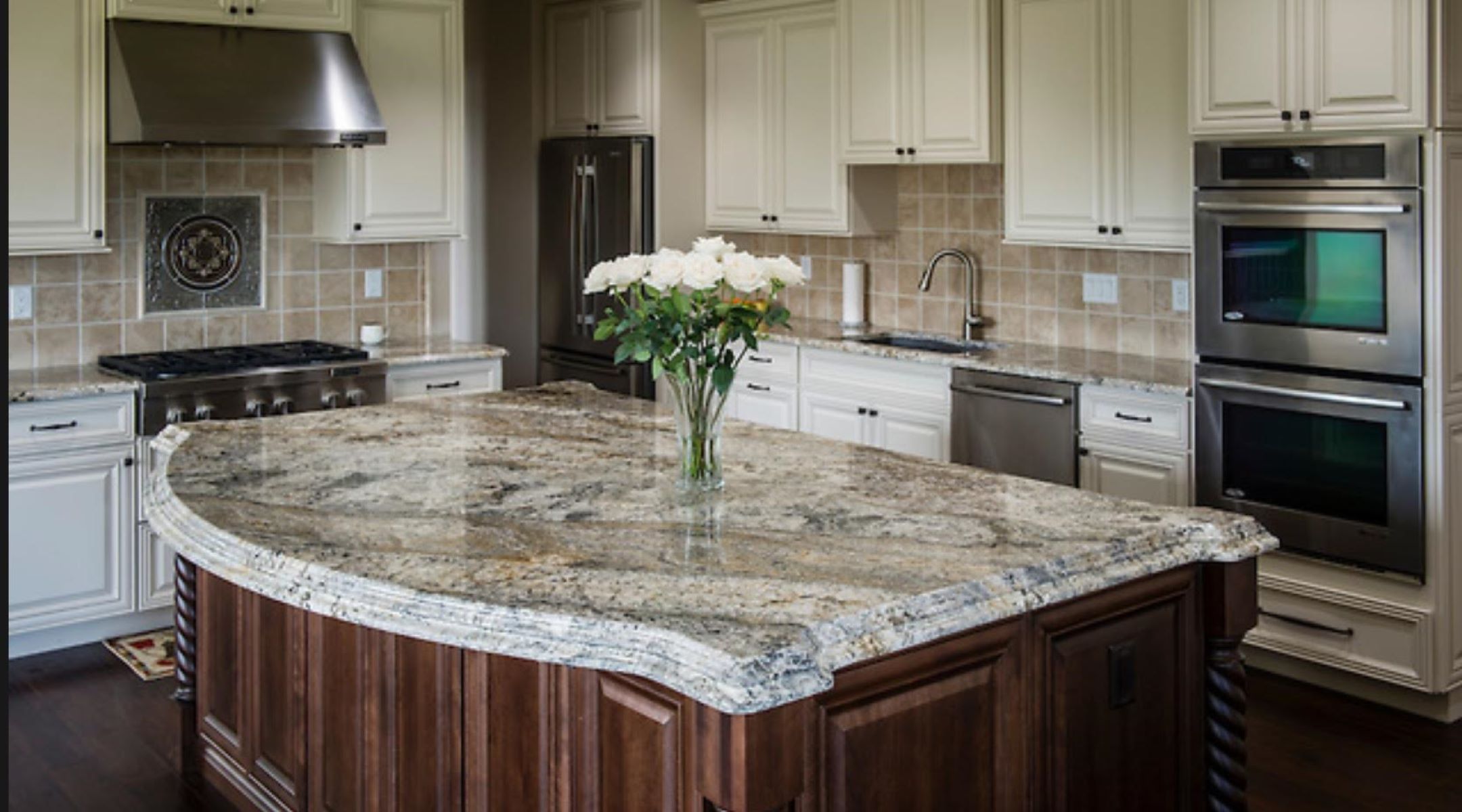
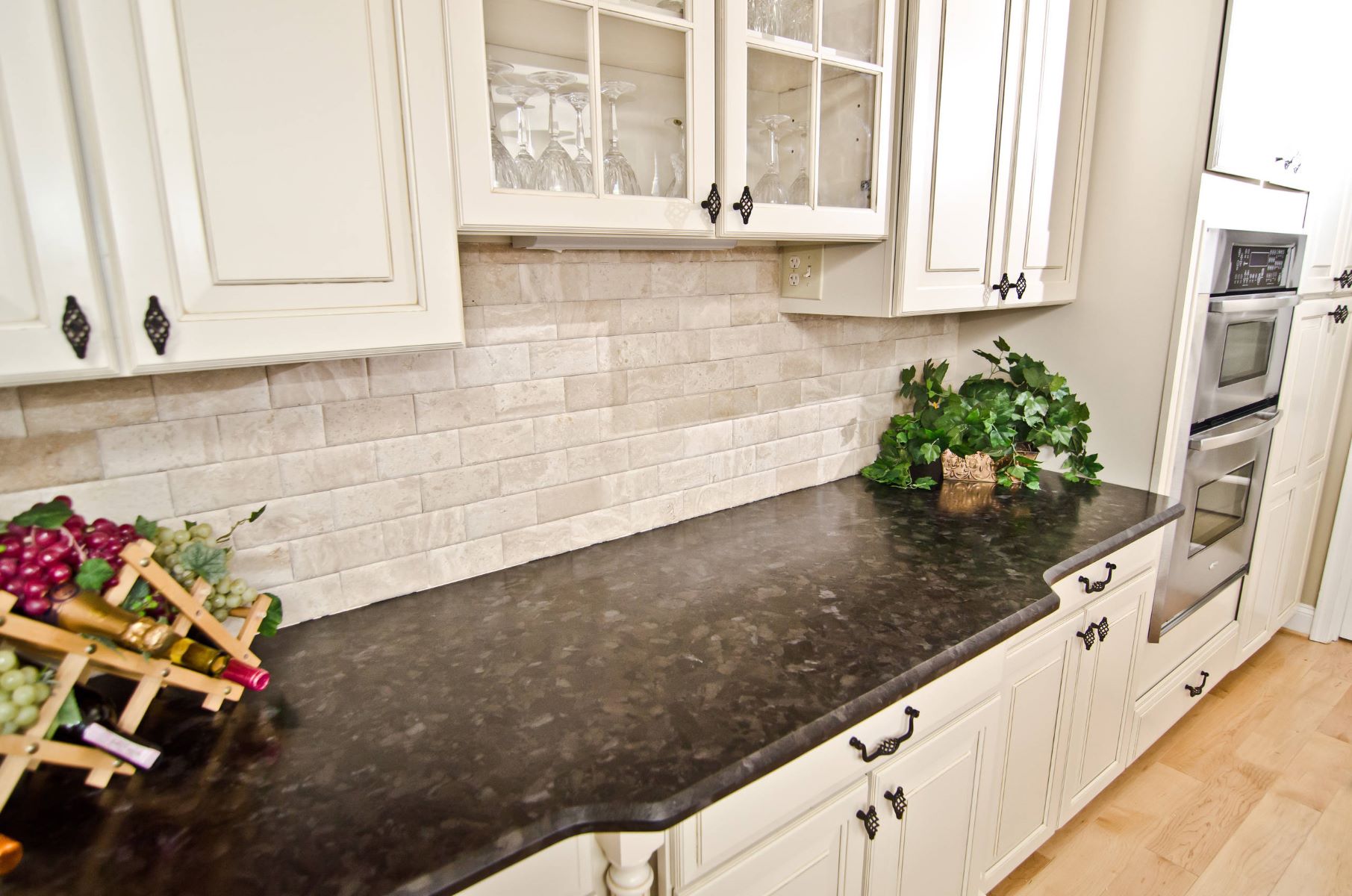
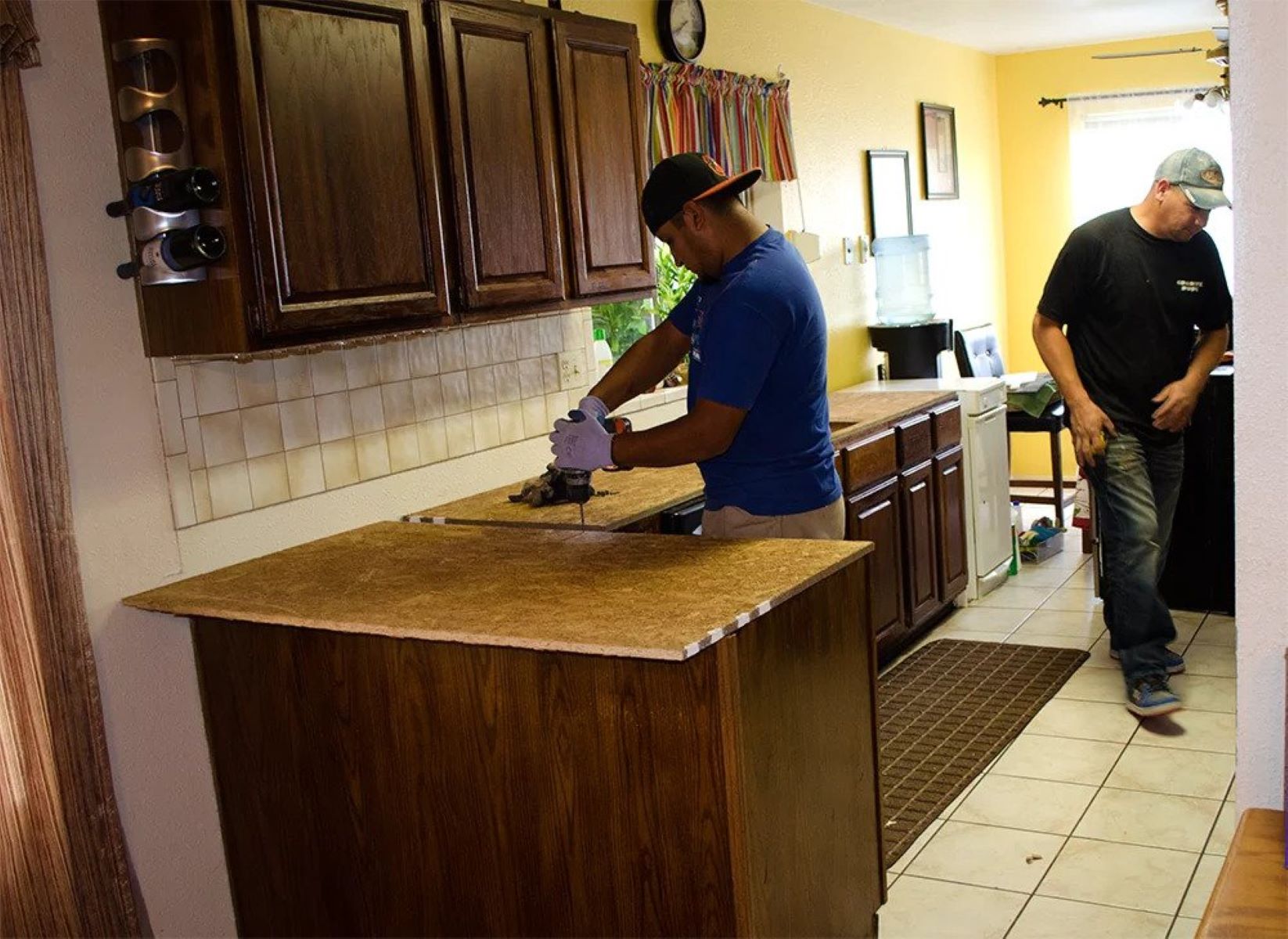
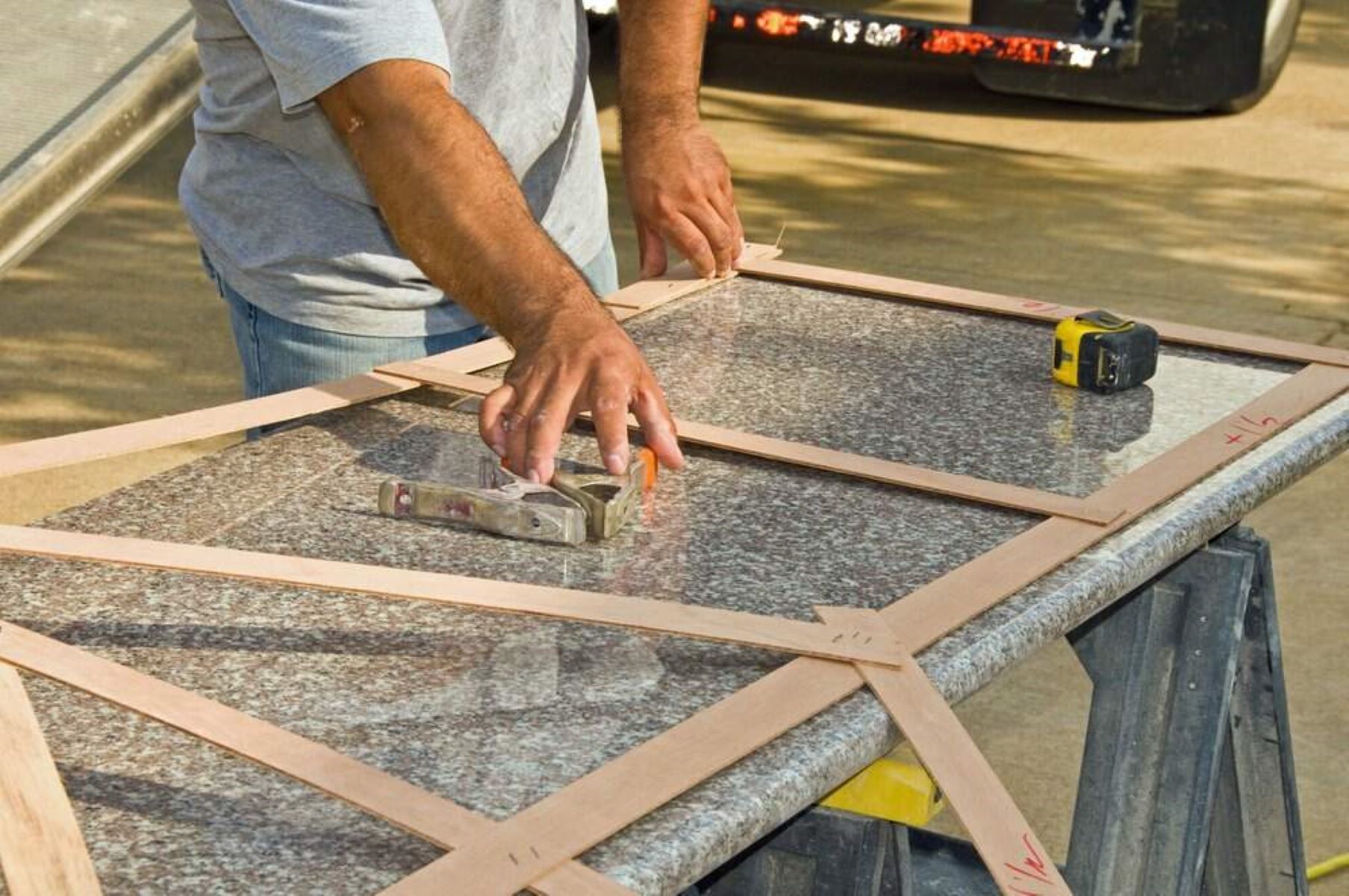
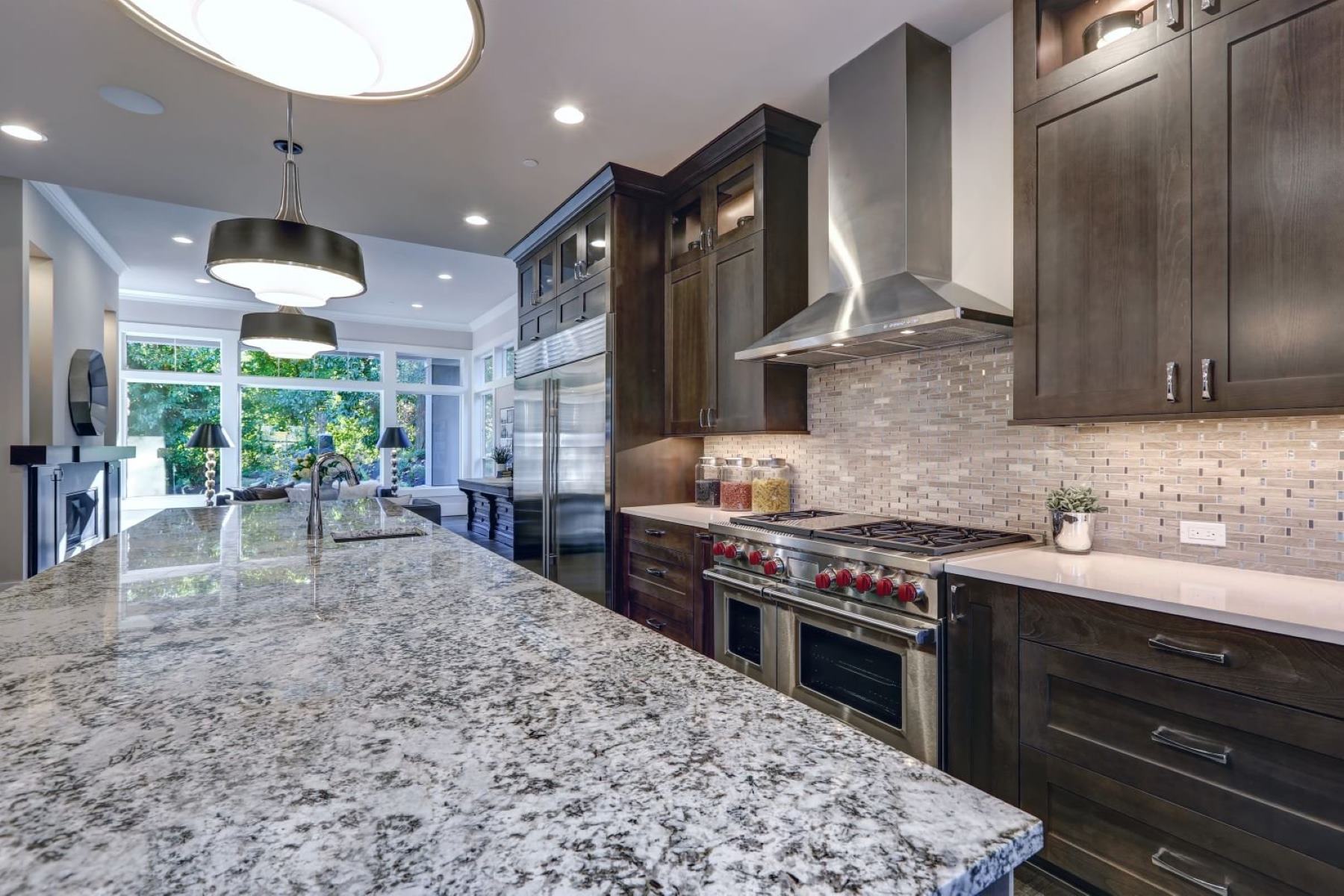
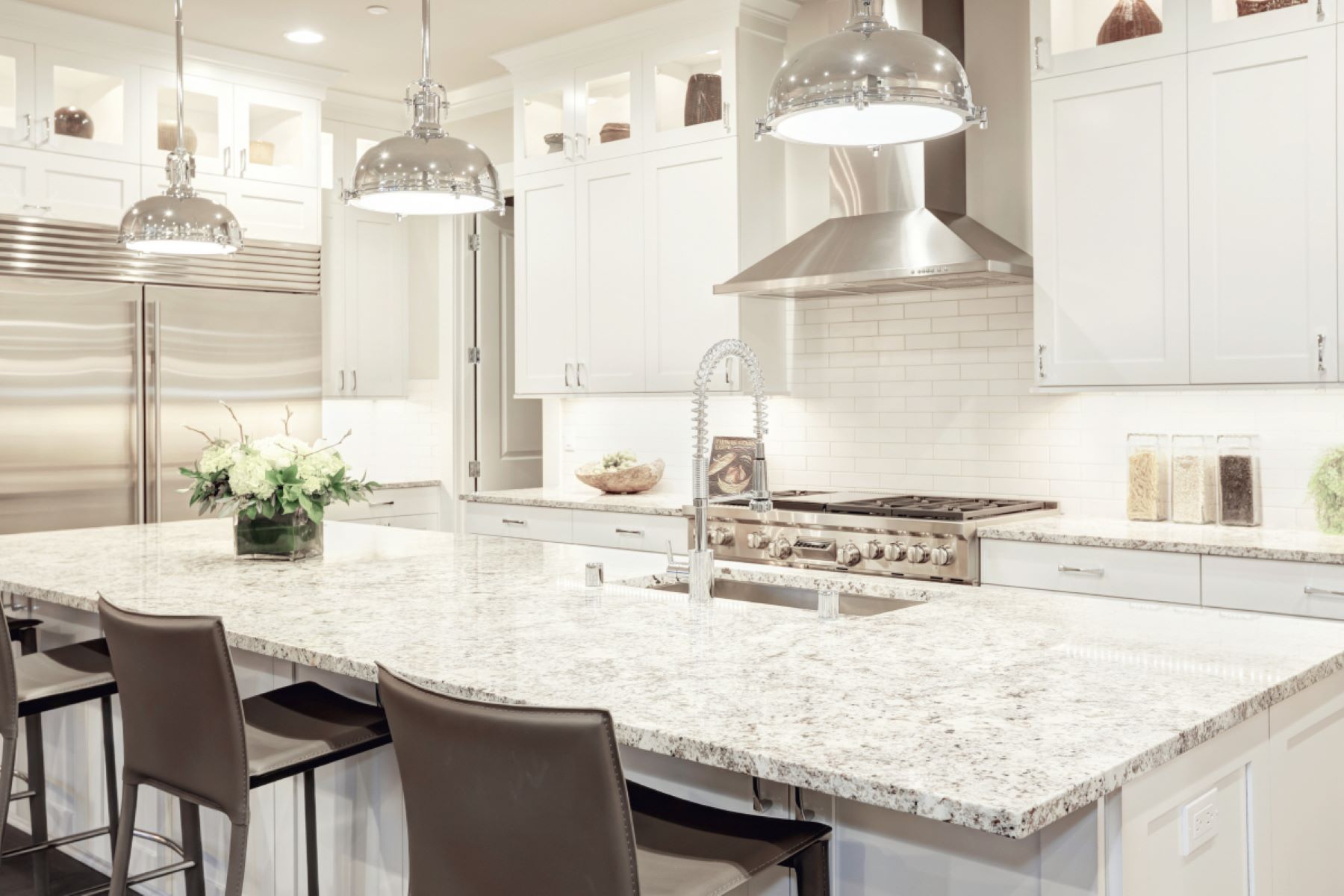
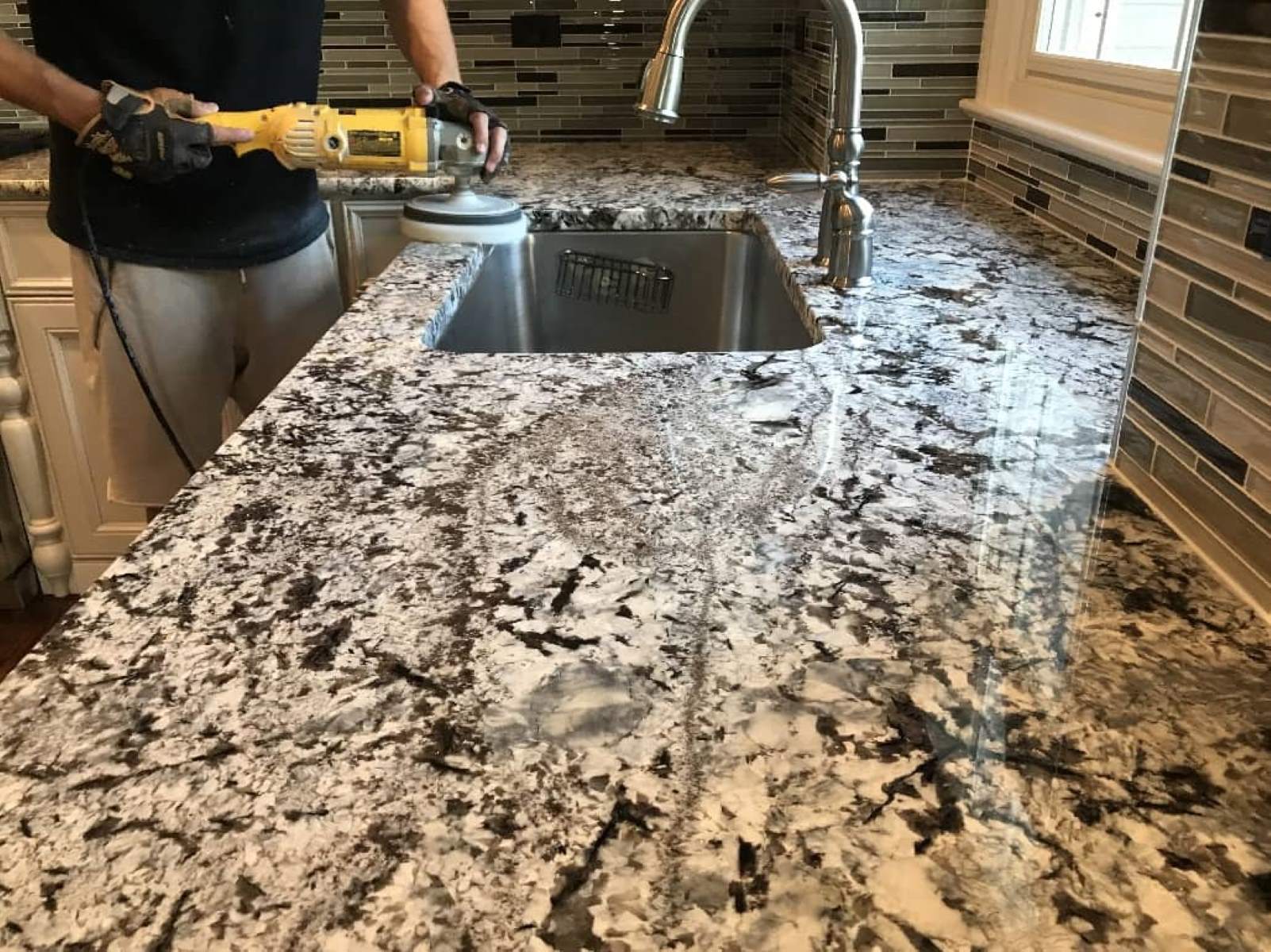
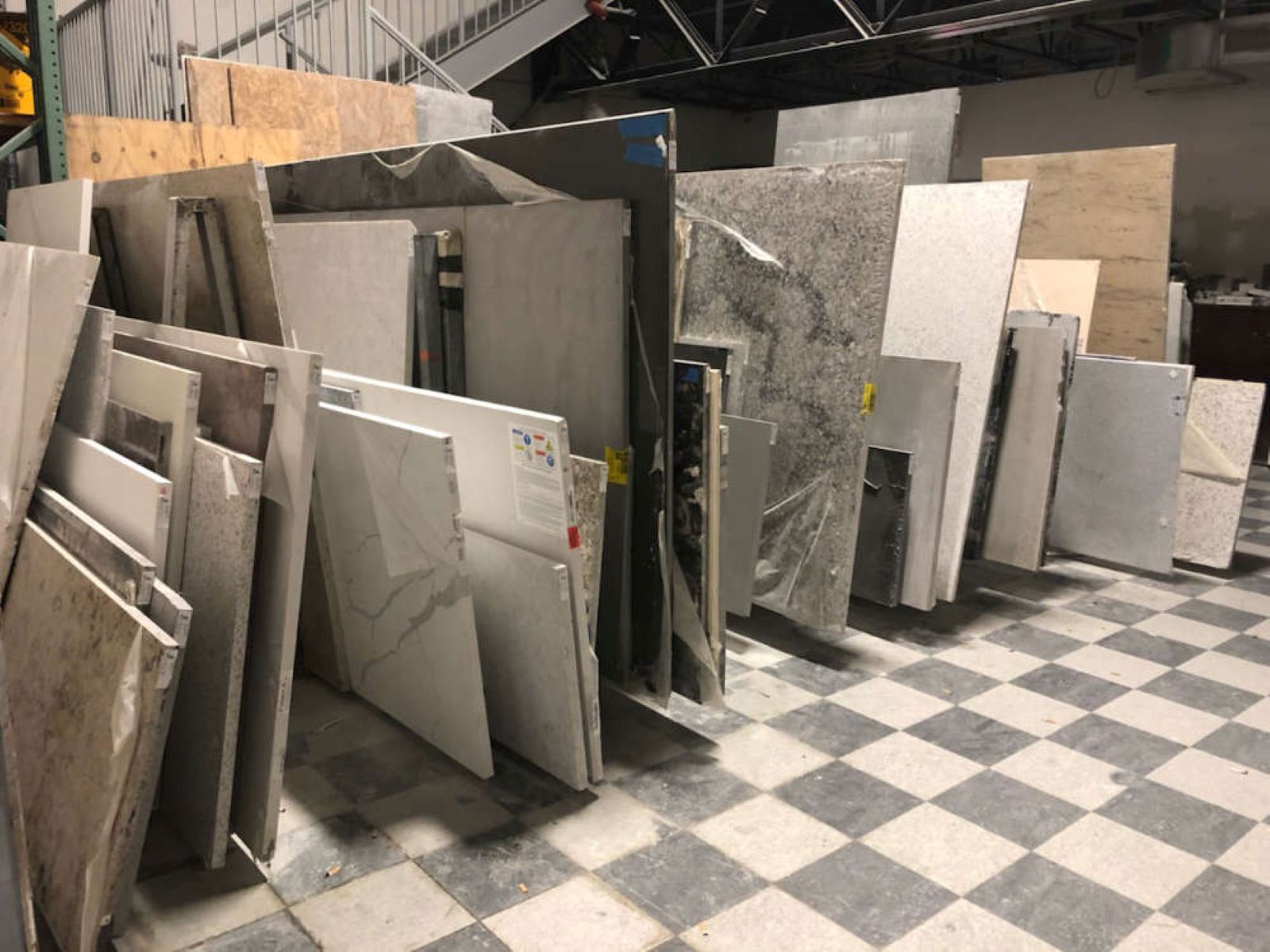

0 thoughts on “What Cleaner To Use On Granite Countertops”